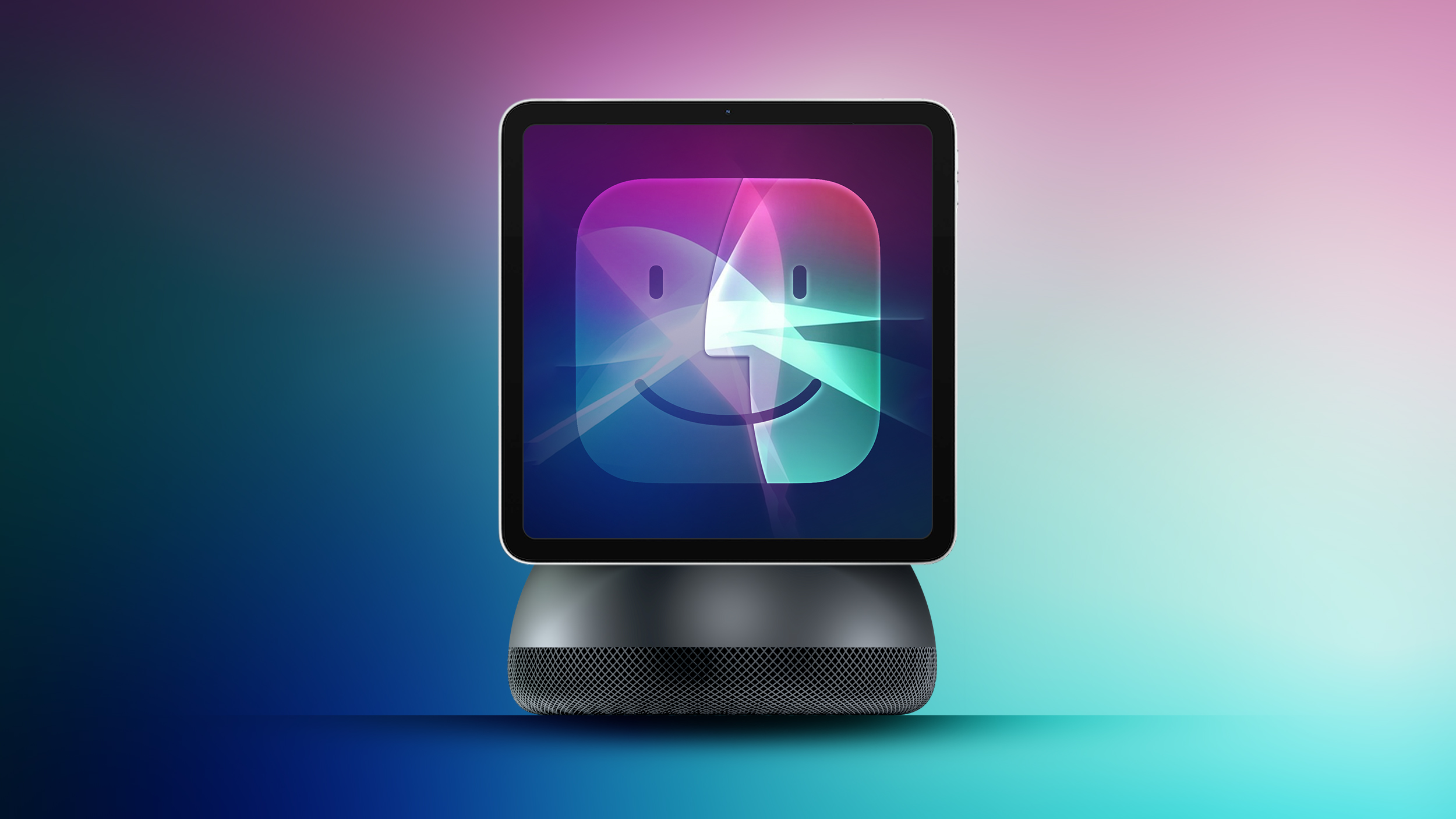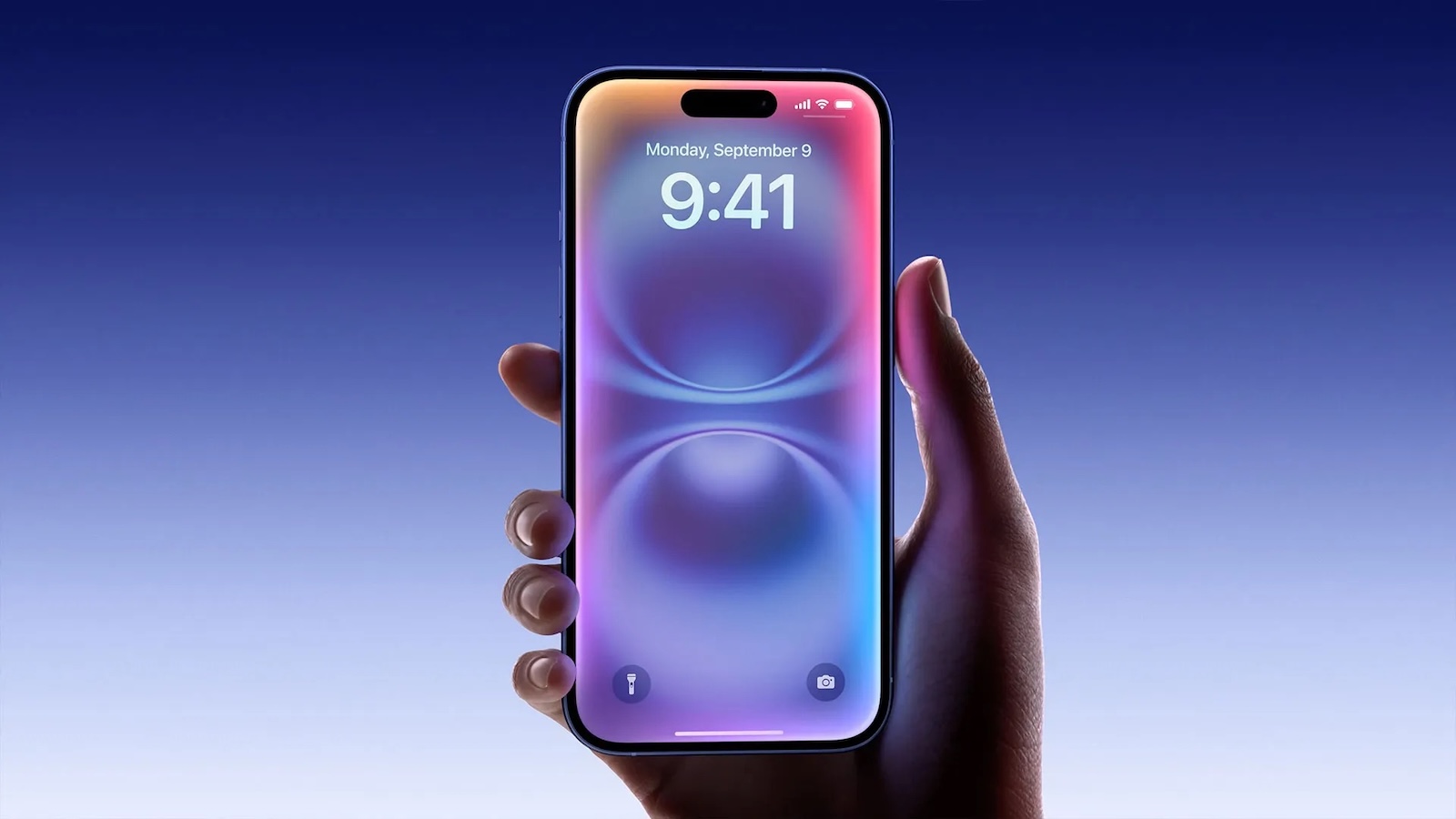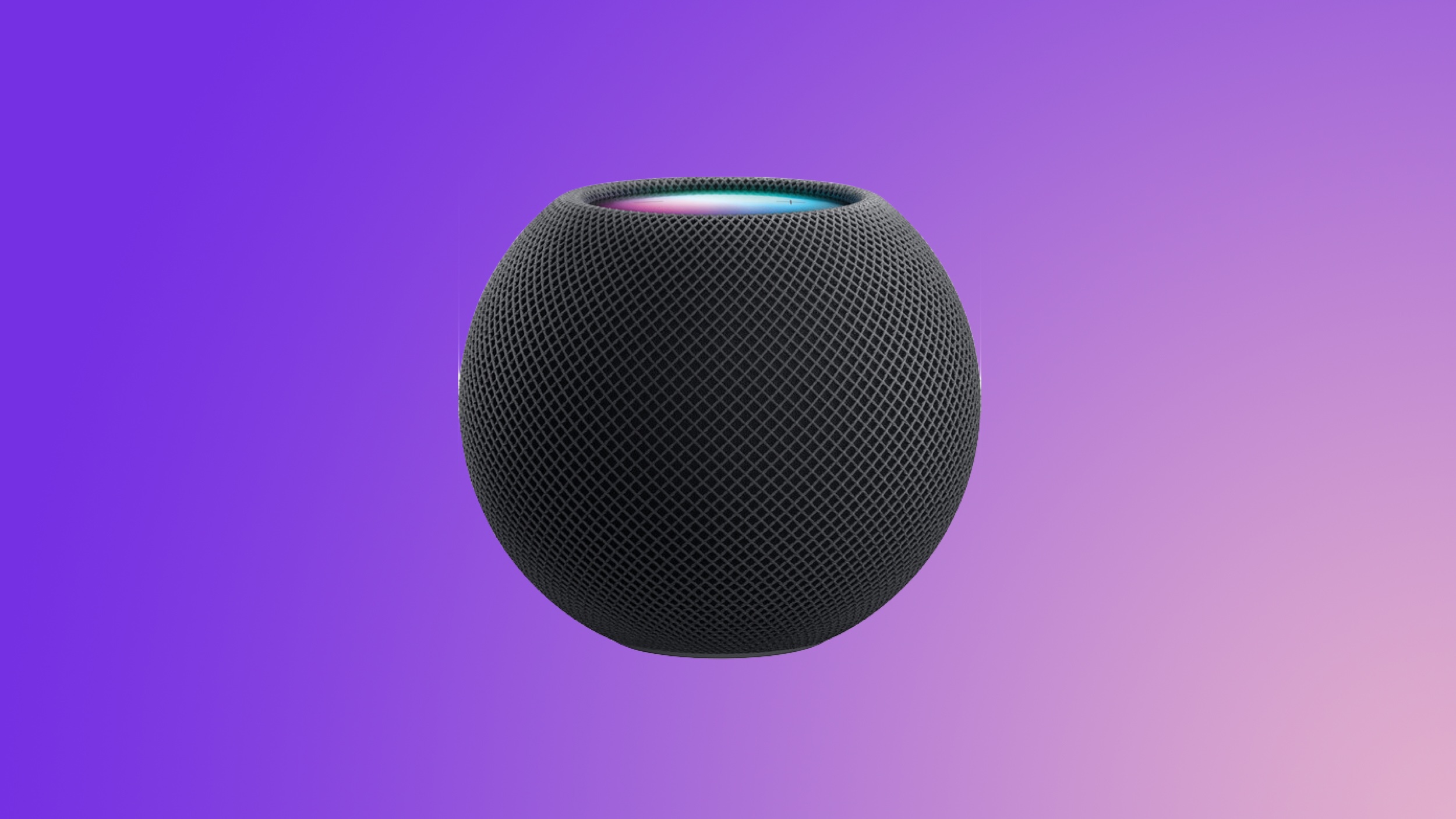Well saidThe new Home Hub actually sounds awesome, finally something from Apple that could centralize smart home control the way it should’ve been years ago. But honestly, they need to fix the Home app first. It’s clunky, slow, and half-baked compared to what Google and Amazon are doing. And Siri? Absolute dog sh*t right now. If Apple doesn’t seriously overhaul the software side, adding another screen to my wall isn’t going to magically make the experience any better. Hardware is great but the ecosystem needs a brain.
Got a tip for us?
Let us know
Become a MacRumors Supporter for $50/year with no ads, ability to filter front page stories, and private forums.
Apple's 2026 Smart Home Revamp: All the Rumors
- Thread starter MacRumors
- Start date
- Sort by reaction score
You are using an out of date browser. It may not display this or other websites correctly.
You should upgrade or use an alternative browser.
You should upgrade or use an alternative browser.
I think this is going to be an updated version of mainframe computing. A single Home Hub will have the hardware horsepower to handle onboard Apple Intelligence and AI-enhanced Siri for the whole home. This means all of your existing HomePods and Apple TVs (plus new Home Hub Screens) on the same network will act as 'dumb terminals' connected to the single Home Hub device. AI and Siri queries will be received on the 'terminal' devices, processed on the Hub and sent back to the terminals. The single hub means not having to upgrade all that existing hardware just to get the full functionality. I also think the hub will probably be a separate puck, like at Apple TV box, and the Apple Home Screens will be separate and inexpensive, because they don't need all the processing hardware. You can then buy two or three with wall hangers or stands where they will normally be stationed.
To those who ask why you even need the screens, the answer is simple. At home, many people set their phone down and leave it somewhere and go do other things without it. Having controller screens located in two or three centralized locations means you don't have to carry your phone everywhere. There's a Home screen at the top of the stairs or in the kitchen. As for the question of why not just have it be your TV, a) your TV probably isn't a touch screen. b) who wants to leave their TV on all the time or have to turn it on (or have to interrupt someone watching TV) just to use the Home controller function? Having that function available on your phone and your TV is fine, but for "it just works" Apple Home access, you want to have distributed terminal screens and HomePods.
To those who ask why you even need the screens, the answer is simple. At home, many people set their phone down and leave it somewhere and go do other things without it. Having controller screens located in two or three centralized locations means you don't have to carry your phone everywhere. There's a Home screen at the top of the stairs or in the kitchen. As for the question of why not just have it be your TV, a) your TV probably isn't a touch screen. b) who wants to leave their TV on all the time or have to turn it on (or have to interrupt someone watching TV) just to use the Home controller function? Having that function available on your phone and your TV is fine, but for "it just works" Apple Home access, you want to have distributed terminal screens and HomePods.
Agree that terminals need screens - homepods less soI think this is going to be an updated version of mainframe computing. A single Home Hub will have the hardware horsepower to handle onboard Apple Intelligence and AI-enhanced Siri for the whole home. This means all of your existing HomePods and Apple TVs (plus new Home Hub Screens) on the same network will act as 'dumb terminals' connected to the single Home Hub device. AI and Siri queries will be received on the 'terminal' devices, processed on the Hub and sent back to the terminals. The single hub means not having to upgrade all that existing hardware just to get the full functionality. I also think the hub will probably be a separate puck, like at Apple TV box, and the Apple Home Screens will be separate and inexpensive, because they don't need all the processing hardware. You can then buy two or three with wall hangers or stands where they will normally be stationed.
To those who ask why you even need the screens, the answer is simple. At home, many people set their phone down and leave it somewhere and go do other things without it. Having controller screens located in two or three centralized locations means you don't have to carry your phone everywhere. There's a Home screen at the top of the stairs or in the kitchen. As for the question of why not just have it be your TV, a) your TV probably isn't a touch screen. b) who wants to leave their TV on all the time or have to turn it on (or have to interrupt someone watching TV) just to use the Home controller function? Having that function available on your phone and your TV is fine, but for "it just works" Apple Home access, you want to have distributed terminal screens and HomePods.
Not sure how I feel about a Google powered Siri LLM. Great that is works and has been tested for a while, and yeh it’s on Apple’s own servers, but they didn’t make it themselves. Wow that guy they poached from Google all those years ago to lead AI at Apple did a stellar job.
Who is Eric?
It's been over a decade since Apple's HomeKit smart home platform launched, and it is overdue for an update. HomeKit and the Home app can no longer keep up with AI-powered solutions from other companies like Google and Amazon, but that's set to change with a smart home revamp that Apple has planned for 2026.

Home Hub
Apple is working on a home hub or "command center" that will serve as a centralized location for controlling smart home products, listening to music, making video calls, getting the weather, looking things up with Siri, displaying photos, making notes, viewing calendar events, and more.
The device has an all-display design that resembles an iPad, with a 7-inch display. It's said to be similar in size and shape to two iPhones placed side-by-side, but Apple is designing two variants. The first version is designed to be mounted on a wall, while the second version has a speaker base that looks similar to a HomePod mini and can be placed on a desktop or countertop.

The home hub will have its own operating system, and while there won't be an App Store, Apple apps will be available as widgets.
Built-in sensors will be able to determine when someone is near the home hub, and the features displayed will change based on presence. If no one is by the hub, it might show information like the time and temperature, but if someone approaches, it could shift to an interface for adjusting the temperature.
Presence detection will enable features like turning on the lights when someone enters the room, and it might also be able to tell one person from another. The home hub will play music, and it does have a camera that can be used for video calls.
Touch-based interactions will be available for widgets, but the hub will be heavily reliant on Siri voice commands. Siri could have a personified look on the hub, with one design described as a version of the Mac Finder icon.
While screen-based smart home devices like the Echo Show are available for under $200, Apple could price the home hub somewhere around $350. Price could vary for the version with the speaker base and the wall mounted version without it.
Apple is aiming to launch the home hub sometime in the March to April 2026 timeframe.
LLM Siri
Apple has held off on launching the home hub because it is waiting to debut the smarter, more capable version of Siri that's been in the works since Apple Intelligence features launched in iOS 18. The original plan was for a better version of Siri to come out in an iOS 18 update, but Apple decided Siri just wasn't good enough to do what it wanted.

Siri was delayed so Apple could overhaul the underlying architecture that powers the personal assistant. The new Siri will be more similar to ChatGPT or Claude than the Siri of today, incorporating large language models to answer complex queries and complete more complicated tasks.
Here's what Apple originally promised Siri would be able to do with Apple Intelligence:
Personal Context
With personal context, Siri will be able to keep track of emails, messages, files, photos, and more, learning more about you to help you complete tasks and keep track of what you've been sent.
- Show me the files Eric sent me last week.
- Find the email where Eric mentioned ice skating.
- Find the books that Eric recommended to me.
- Where's the recipe that Eric sent me?
- What's my passport number?
Onscreen Awareness
Onscreen awareness will let Siri see what's on your screen and complete actions involving whatever you're looking at. If someone texts you an address, for example, you can tell Siri to add it to their contact card. Or if you're looking at a photo and want to send it to someone, you can ask Siri to do it for you.
Deeper App Integration
Deeper app integration means that Siri will be able to do more in and across apps, performing actions and completing tasks that are just not possible with the personal assistant right now. We don't have a full picture of what Siri will be capable of, but Apple has provided a few examples of what to expect.
This summer, Apple software engineering chief Craig Federighi said that transitioning Siri to new architecture was a success, and that the personal assistant is going to be an even bigger update than expected.
- Moving files from one app to another.
- Editing a photo and then sending it to someone.
- Get directions home and share the ETA with Eric.
- Send the email I drafted to Eric.
"The work we've done on this end-to-end revamp of Siri has given us the results we needed," Federighi told employees. "This has put us in a position to not just deliver what we announced, but to deliver a much bigger upgrade than that we envisioned."
Apple decided to use AI technology from Google, so Siri will in part be powered by a Google Gemini model that Google designed for Apple. Siri will be as capable as Gemini since it is using the same underlying technology, but Apple will run the model on its own Private Cloud Compute server with no information provided to Google.
The new version of Siri is expected to be ready for an iOS 26.4 update planned for the same March or April timeframe rumored for the home hub.
HomePod mini and Apple TV
We're supposed to be getting updated versions of the HomePod mini and the Apple TV at some point between now and early 2026.

Both devices will get chip upgrades, and in the case of the Apple TV, it could gain support for some Apple Intelligence features. New Apple-designed networking chips will be included, but neither device is going to get a design update.
The HomePod mini and the Apple TV are linked to Apple's smart home platform and serve as smart home hubs for Matter, the cross-platform protocol that opens up the number of smart home accessories that are compatible with HomeKit.
Apple Security Cameras
Rumors suggest that Apple is designing its own indoor security cameras that will connect to HomeKit and interface with the planned home hub.
Cameras designed directly by Apple would offer unique integrations with Apple devices, and wo... Click here to read rest of article
Article Link: Apple's 2026 Smart Home Revamp: All the Rumors
You ask “who is Eric”? Eric is a whisper in the breeze; a fleeting reflection on the face of a beautiful woman; he is a fallen tree in a forest, the shape in the grass where Schrödinger's cat may have slept; the flying saucer witnessed by only a small sausage dog; he is half a bee on a window sill, he is a long forgotten fragrance from childhood - nothing more than the rarest of ideas hidden like a conundrum in a crossword in a newspaper you found in your attic. He is all of us. You, yes you are Eric!Who is Eric?
This does not seem the common consensus on YouTube. Virtually all the smart home guys now prefer the Apple ecosystem … outside of going down the Home Assistant route. As long as you have well known brands like Hue, Eve etc. Apple Home is incredibly easy to use. Yeah agree Siri is rubbish though. I kind of wish Apple would buy Homey and make it work a bit better.The new Home Hub actually sounds awesome, finally something from Apple that could centralize smart home control the way it should’ve been years ago. But honestly, they need to fix the Home app first. It’s clunky, slow, and half-baked compared to what Google and Amazon are doing. And Siri? Absolute dog sh*t right now. If Apple doesn’t seriously overhaul the software side, adding another screen to my wall isn’t going to magically make the experience any better. Hardware is great but the ecosystem needs a brain.
Register on MacRumors! This sidebar will go away, and you'll see fewer ads.


